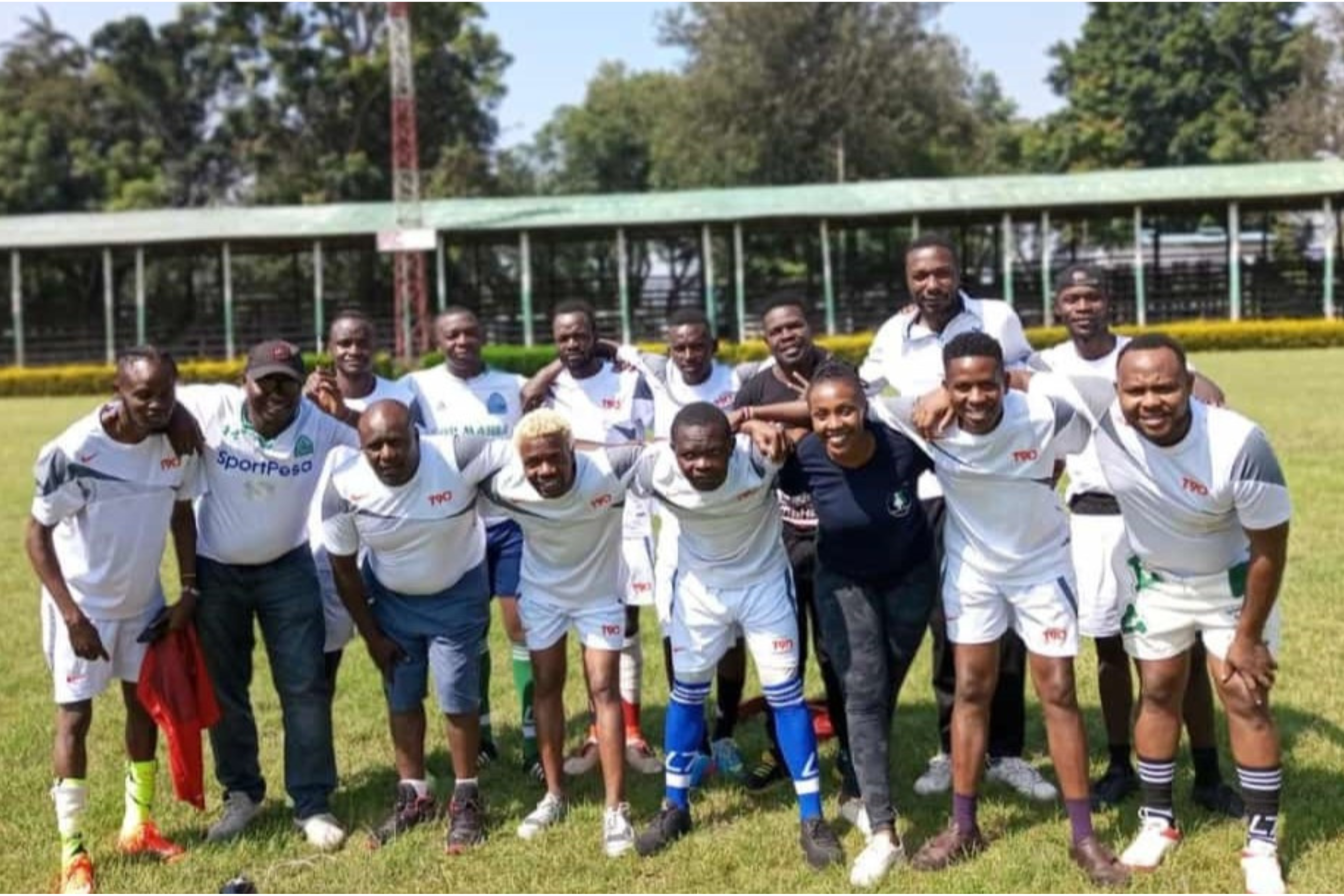
Country
Kenya
Organisation
Haven of Dreams
Key Words
Equality, Empowerment, Sports, Mental Health, Resilience
Themes
- Empowerment of Women and Girls in and through PEPAS
- Gender-Based Violence (GBV) and/or Violence against Women and Girls (VAWG)
- Mental and Physical Health and Wellbeing
- Sexual and Reproductive Health and Rights (SRHR)
Summary/Overview
Haven of Dreams is a youth led and serving organization that provides safe space to become their best version. We envision a society that is holistically healthy and empowered. Our major thematic areas are Mental Health and Psychosocial Support and approaches we use are arts, sports and play and bibliotherapy. The program has three components: awareness creation, self-defense and physical training and leadership and mentoring. The program not only focuses on the individual only but the system around her. The program focuses on working on the intrapersonal relationship (relationship with self before relationship with others which brings about self-awareness.
Problem Statement
In Kenya, gender inequality remains a pervasive issue, particularly in sports and physical activities. Our programs address these challenges by focusing on the prevention and management of gender-based violence (GBV) and promoting women’s empowerment within the Physical Education, Physical Activity, and Sport (PEPAS) context. Implemented in collaboration with local schools and community centers, the initiative targets young women and girls, providing them with safe spaces to engage in sports. The program also includes educational workshops on GBV awareness, self-defense classes, mental health, and leadership training. Despite cultural and logistical challenges, such as early marriages, patriarchal systems and limited resources, our approach has fostered a supportive environment where women can thrive and challenge traditional gender roles as well having men champions for women rights. Our approaches are participatory and human rights based. Mental Health concerns are faced with a lot of challenges and stigma. Our approaches ensures that we tailor-make projects to bridge the divide in awareness and access to services by implementing programs at the community level. There is a nexus between mental health and other spheres in life and sports is a unifying factor that we use.
About the Programme
Our intervention starts with community engagement sessions to raise awareness about gender equality and the importance of women’s participation in different spaces through sports. We partner with learning institutions, Civil Society Organizations, National and County Government. The program consists of three main components.
- Awareness creation: These sessions cover topics such as gender equality, GBV awareness, Value Clarification and Attitude Transformation Sessions, advocacy and lobbying. Facilitators use interactive methods to engage participants and encourage dialogue. Some of the activities include indoor games, movement and physical activities like hikes. Through team up skills, we use sports as a mode of mobilization and implementation of programs.
- Self-Defense and Physical Training: Through a program dubbed Okoa Kairetu that focused on teenage mothers, their families and community. Participants who are mainly teenage mothers receive training in self-defense techniques particularly boxing and physical fitness, helping them build confidence and resilience and anger management. Professional trainers lead these sessions, emphasizing safety and empowerment.
- Leadership and Mentorship: Mentorship is key in our organization. We have used sports like football to provide mentorship to young girls in informal settlements. The program includes leadership training to empower women to take on leadership roles within their communities, sexual and reproductive health rights.
Challenges
The program faces challenges such as cultural resistance and limited resources. Some communities are hesitant to embrace gender equality initiatives, and funding constraints limit the program’s reach. To overcome these challenges, we continue to engage with community leaders and seek additional funding opportunities.
Successes
Increased Participation: There has been a notable increase in the number of women and girls participating in sports and physical activities. This engagement has fostered a sense of community and belonging among participants.
GBV Awareness: Participants have demonstrated improved awareness of GBV and their legal rights and consequences, leading to a decrease in reported incidents within the community. The awareness creation sessions and use of sports have created a safe space for the women and girls to open up, share experiences, seek support and problem solve.
Leadership Development: Several participants have taken on leadership roles in local decision-making structures including school leadership and community leadership. This shift has challenged traditional gender norms and inspired other women to pursue similar paths.
Personal Development: Through partnership with Kujikubali Festival, a program that brings adults to talk deliberately on their childhood experiences while playing games and sports they played in their childhood. Hikes and walks have been used for reflection.
Lessons
Community Engagement is Crucial: Building trust and support within the community is essential for the success of gender equality initiatives. A participatory approach has led to community buy-in and ownership.
Tailored Approaches Work Best: Tailor-made programs ensure that we serve the needs of the community which creates a need for belonging and ownership. Different sports and activities are preferred by different communities.
Sustainable Funding is Key: Securing ongoing funding is necessary to maintain and expand successful interventions. Only through sustained programming can we continue to drive change. Interrupted funding and programming are a significant and ongoing challenge.
Resources are key Empowerment through Education: Books, Information, Education and Communication materials support empowerment. Tailoring indoor games can help to teach lessons and encourage deeper reflection.
Educational components are critical in raising awareness and promoting long-term change. Support Networks Matter: Creating strong networks of mentors and leaders helps sustain the empowerment of participants. A strong network helps connect individuals and communities and creates a ripple effect that helps in reducing the gap of individuals with knowledge and power.
Additional Resources
Authors
- Zipporah Nyangara, Executive Director, Kenya
- Kevin Karuga, Program Manager, Kenya
